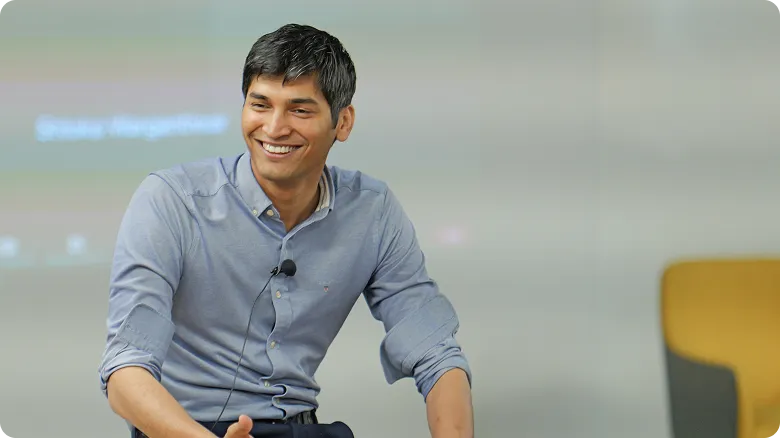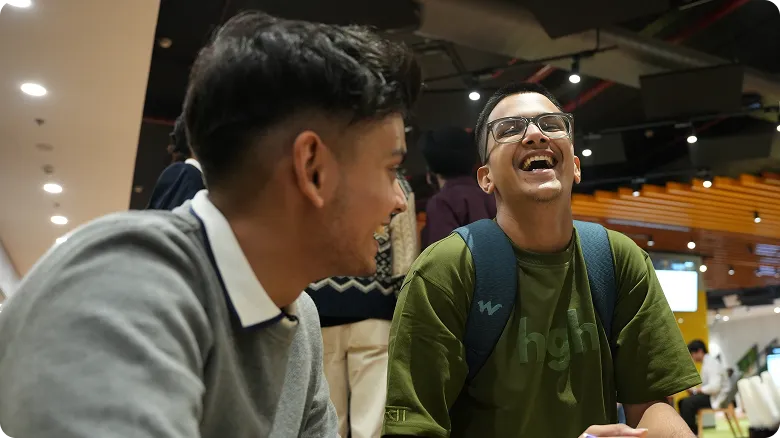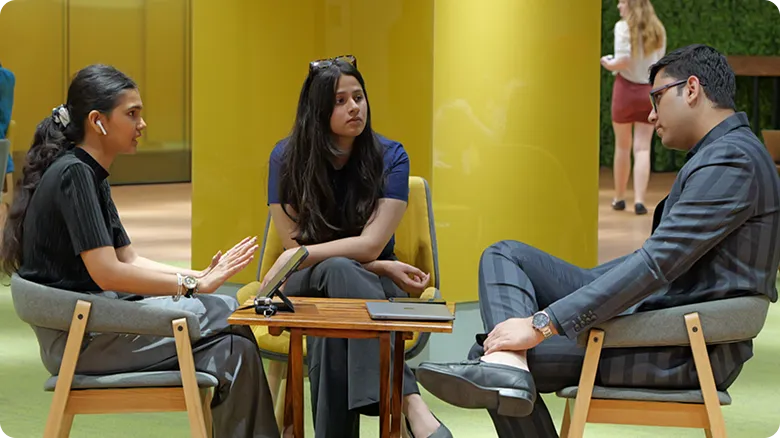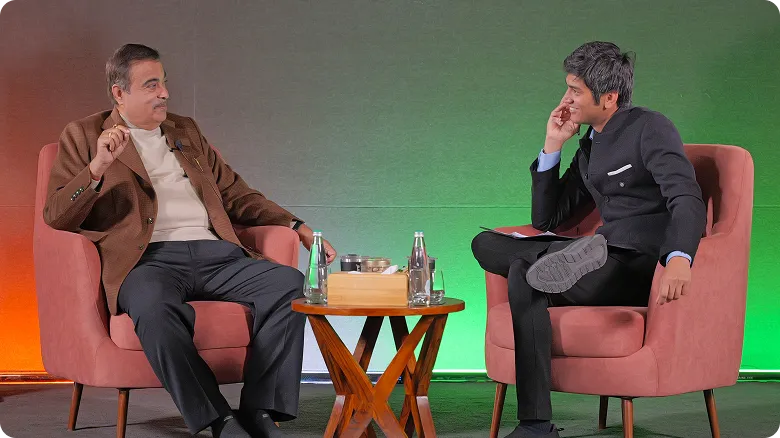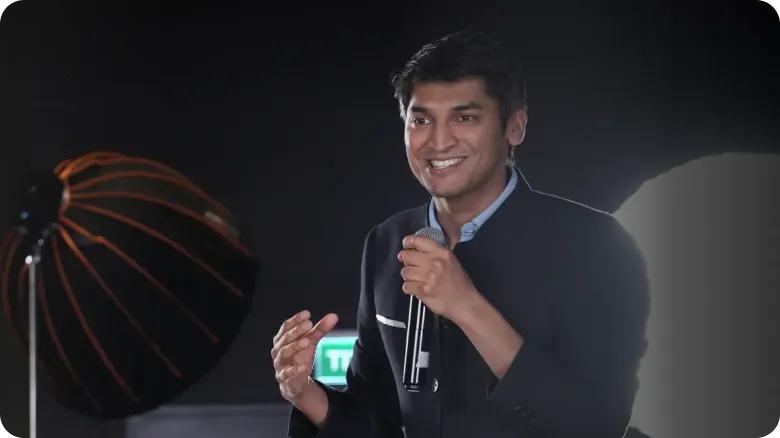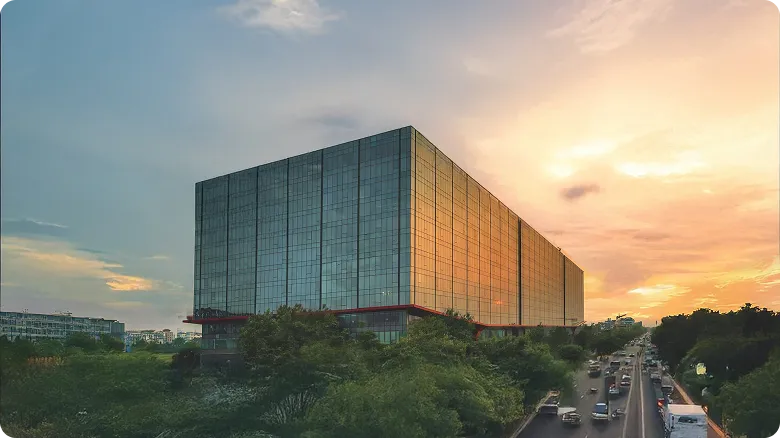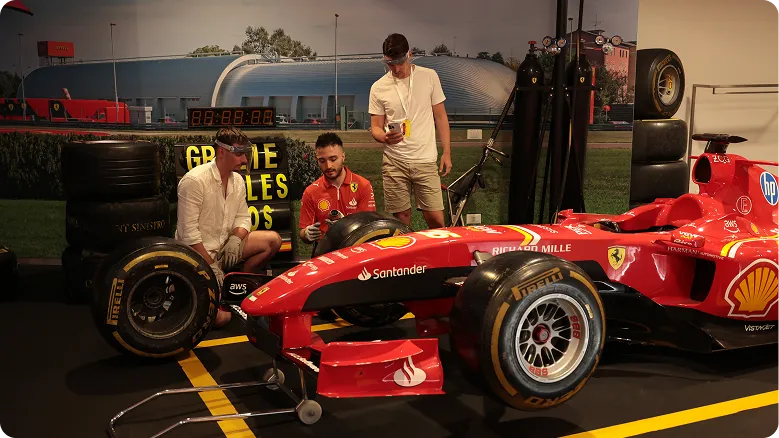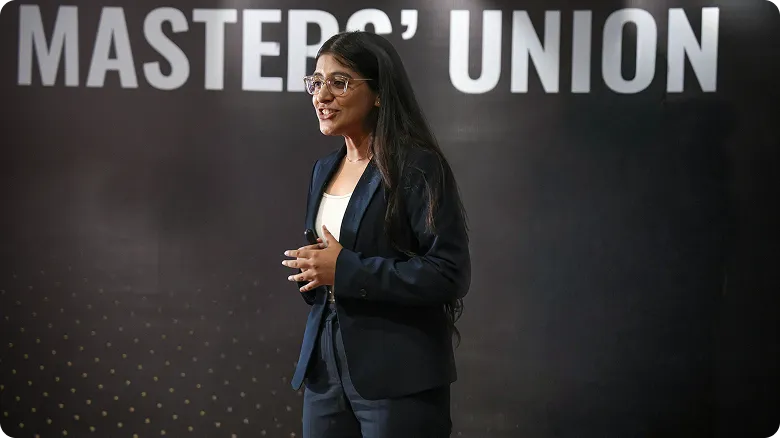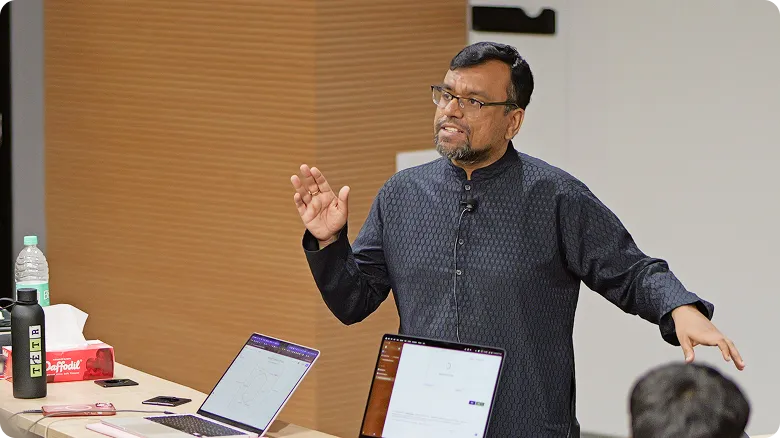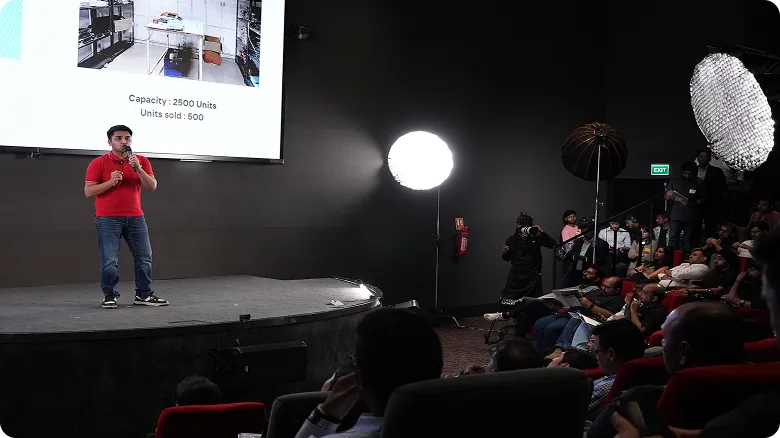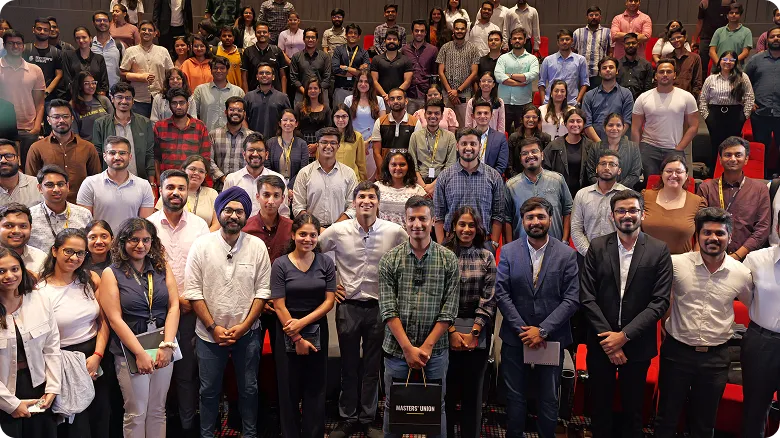Undergraduate
Undergraduate (Global)
Postgraduate
PGP in Technology and Business Management
PGP in Technology & Business Management
(Young Leaders Cohort)
PGP in Human Resources & Organisation Strategy
PGP in Sports Management & Gaming
PGP in Applied AI & Agentic Systems
PGP in UI/UX & Product Design
PGP in Sustainability & Business Management
PGP Bharat
Executive
Family Business
Careers
Innovations
Faculty
MU Ventures
Enterprise Education
Student Life
Jobs
Become a Master
events
For Companies
Blog
Faculty
The Moon Base Challenge: What NASA’s Chief Knowledge Officer Taught Our Students
March 7, 2025
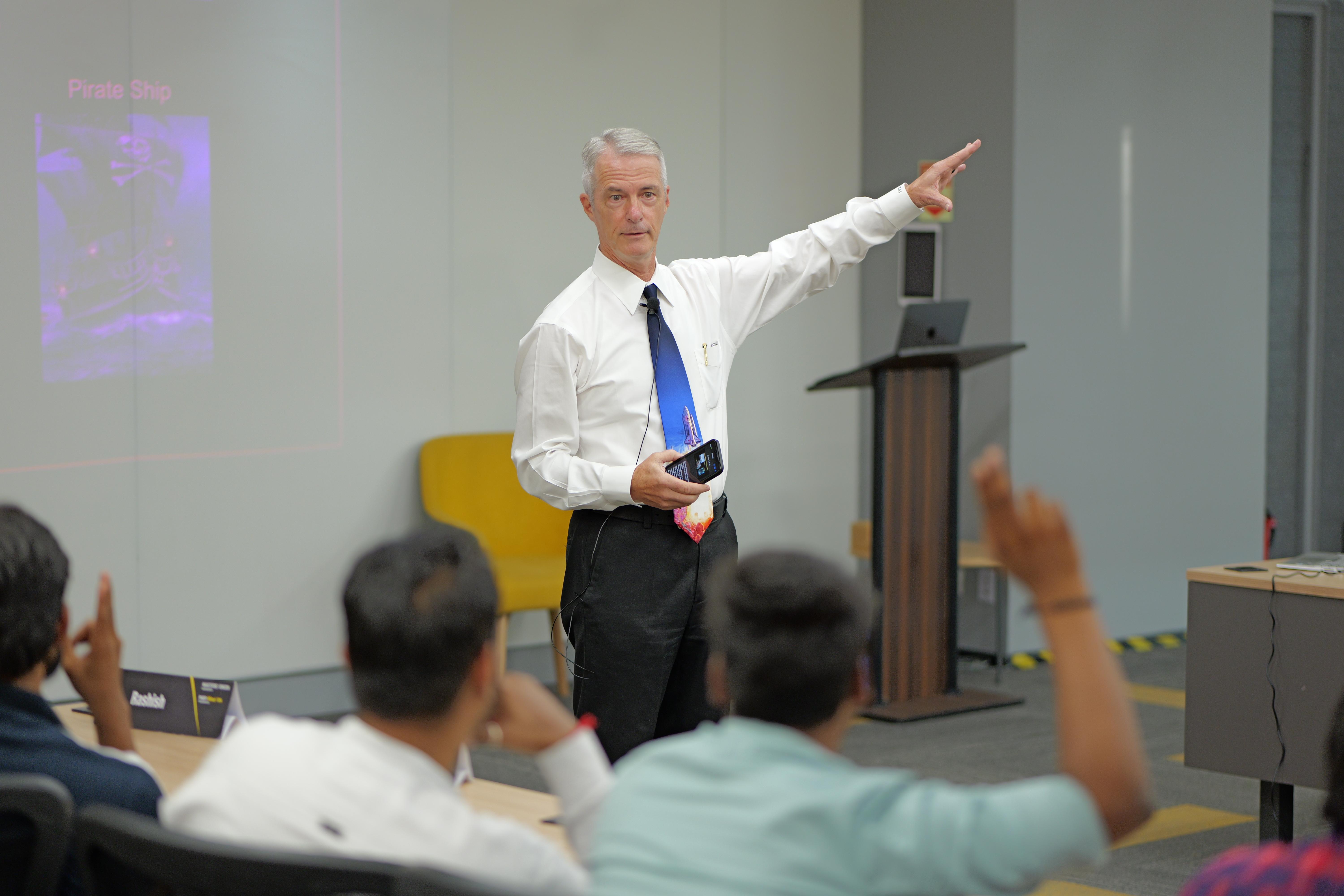
At Masters’ Union, learning transcends textbooks and bridges the gap between theory and real-world impact. Classes taken by Dr. Edward Rogers embody this philosophy.
With 17 years as Chief Knowledge Officer at NASA, helping rocket scientists solve their “people” puzzle, Dr. Rogers now teaches The Art of Managing Complexities at Masters’ Union.
When a NASA strategist like Dr. Rogers steps into a classroom, innovation, critical thinking, and a systems-based approach to problem-solving take center stage. Here’s a deep dive into how his class transforms students and trains them to think like strategists and act like leaders.
The Moon Base Challenge: Where strategy meets imagination
Imagine it’s the year 2124. You’re part of a team designing a sustainable lunar colony for 1,200 residents. You need to consider radiation exposure, gravity changes, extreme temperatures, and limited Earth shipments.
What industries would thrive? How would people live, work, and interact?
That’s the problem statement that Masters’ Union students tackled in The Moon Base Challenge. This is a futuristic simulation test by Dr. Rogers, that challenged our students to brainstorm innovations ranging from hydroponic farming to rocket fuel production.
With this challenge, students applied systems thinking and learned to consider factors like resource optimisation and strategic decision-making in their approach to finding solutions.
The Vasa Case Study: A practical lesson in leadership
The Vasa case simulation in Dr. Roger’s class transports students back to 17th-century Sweden, where they assume leadership roles in building a grand warship. As our students navigate the chaos of miscommunication, power imbalances, and conflicting priorities, they learn the timeless challenges of managing teams and projects.
The King is bold, but a poor manager. The designer is innovative, but silenced. The Navy Admiral excels at war, but falters amidst unclear requirements. Together, they create a top-heavy ship that tragically sinks on its maiden voyage. With conflicting priorities, power struggles, and miscommunication at play, students experience firsthand what happens when leadership falters.
Simulations like this immerse students in real-world decision-making scenarios, offering firsthand insights into the complexities of leadership and serves as a masterclass that addresses why organisational alignment is critical for success.
Classroom reflections
Beyond simulations, Dr. Rogers introduces mental models that shape how leaders think and make decisions in complex environments. Here are some key takeaways:
-
Why Innovation Matters: Great leaders don’t just manage. They create environments where teams can experiment, learn, and think big.
-
Handling Complexity Like a Pro: Data is important, but intuition and experience often drive the best decisions when navigating uncertainty.
-
Staying Relevant in a Changing World: The job landscape is shifting faster than ever. Adaptability, continuous learning, and curiosity are non-negotiable.
-
The Human Element is Everything: No matter how advanced technology gets, leadership, empathy, and teamwork remain the bedrock of success.
Lessons beyond the classroom
Dr. Rogers’ class is an academic exercise and a training ground for the future. Whether students go on to lead Fortune 500 companies, build startups, or drive policy decisions, the ability to navigate complexity, think strategically, and lead with clarity will set them apart.
At Masters’ Union, we don’t just equip students with knowledge, but instill in them the strategic foresight and adaptability to shape the future, no matter where they go.

